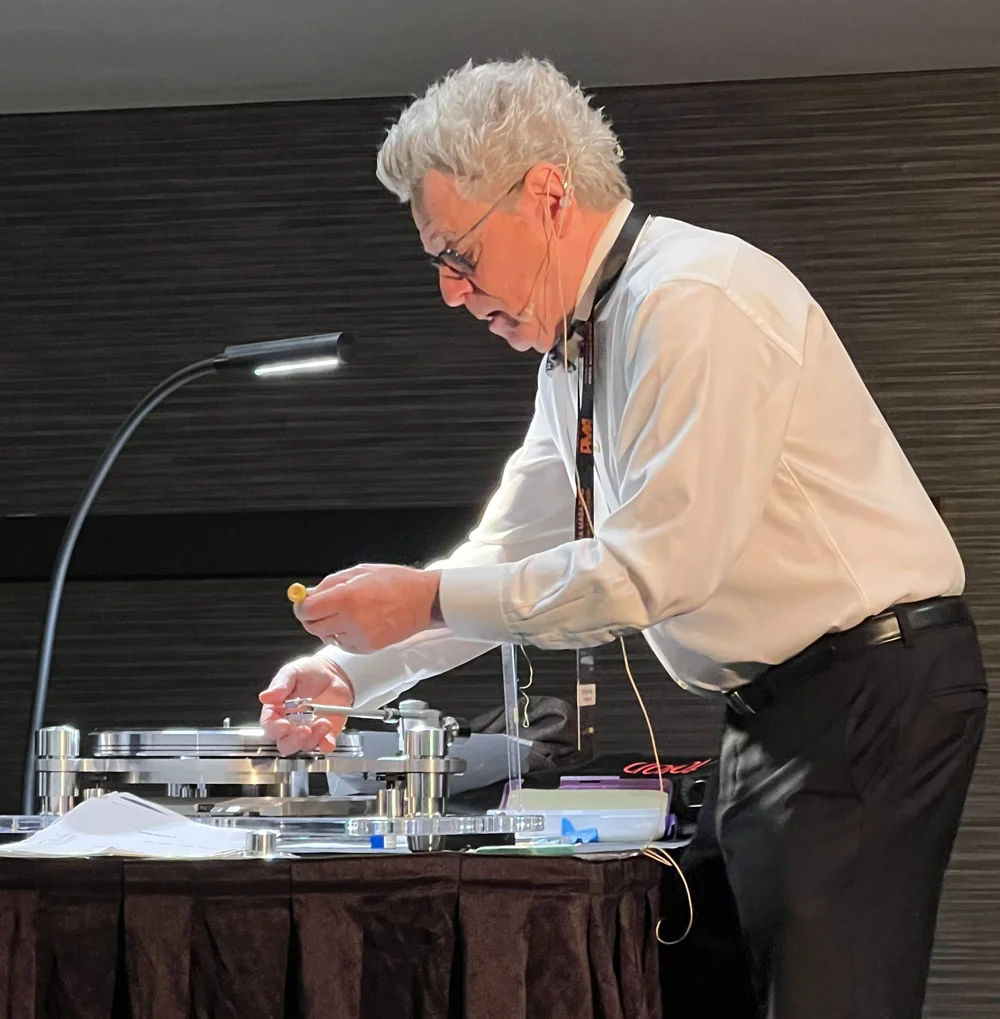
Welcome to the third and final installment in our interview with Michael Fremer. Mikey had a lot to say (and get off his chest). In this part, he talks about good digital (!), the ethical responsibilities of an audio reviewer, his 17-year-old protégé Malachi Lui, and a lot more.
Even Mikey admits that the sound of digital playback has come a long way since its nascent ear-bleeding days. Still, is there an entry-level vinyl setup available today he thinks can beat the sound of even the most expensive digital front-ends?
“A Rega Planar 3,” he says. “Properly set up, it’ll take care of your records, and, with a good recording, deliver sound quality I don’t think you can get from even from the best digital players.
“I recently received a $4,000 Ethernet switch. It’s this heavy, metal Ethernet switch designed by a scientist, a guy who’s involved in digital communications and is an audiophile. He heard what happens when you put an Ethernet cable into a cheap plastic digital switch, so he started investigating. And what he designed sounds much better than the cheap plastic one I had, and I’m going to write about it, even though it’s going to drive people crazy.
“After I heard the difference, I spoke to a few digital engineers who were also audiophiles to see if they could explain what I was hearing. They all said the same thing: all the information going into the switch, whether it’s a $30 or $3,000 switch, is getting into your DAC. That doesn’t change. What’s different is the clock inside the switch. If the clock is better, it can re-clock the data coming in and send it out with less jitter, and you’ll hear that. If attention is paid to the ground and draining out the ground noise, it should make a difference.
“The same is true with turntables. I just put a rubidium clock in a turntable I’m reviewing for Esoteric, a company known for its SACD players and DACs.”
Was that the turntable I saw in his latest video?
“Yes. The turntable sounded great without the clock, but with the clock, it’s even better. It did the same thing for vinyl that the clock in the digital switch did for digital—remove a layer of thinness and hash and smoothed things out.”
Is it his turntable?
“No, I’m just reviewing it for The Absolute Sound (TAS).”
What ‘table is he using now?
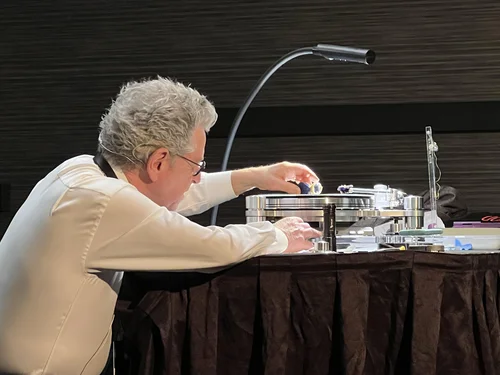
“The OMA K3 turntable, the prototype of it. The real one costs $360,000, which I can’t afford even at an accommodation price. Mine is identical mechanically to the finished product but cosmetically it’s not as nice. It’s really changed my mind about direct-drive turntables. Actually, Technics’s SP-10R was the first direct-drive turntable to make me consider getting rid of my belt-drive.”
So what’s better—belt-drive or direct-drive?
“I’m agnostic about it,” he says. “There are good belt-drives and good direct-drives. They sound different. Some people think belt-drives sound sluggish. Others find direct-drives too hard and tight-sounding, with bass that isn’t lush enough. Ultimately, it’s about personal preference.
“Some people say that the problem with vinyl is that when you change your cartridge, the whole sound changes, so the format is bogus. It’s not the right sound because it’s not what the studio engineer wanted. Well, then, I would need to have the speakers and electronics the studio engineer was using. I don’t have those. I have something else.
“These straight-jacketed, hairshirt people are ridiculous. People should be able to enjoy their music in a way that works for them.”
But isn’t the purpose of a hi-fi system to make instruments sound authentic?
“That’s different,” he says. “You want the sound of real instruments. On the other hand, some people don’t know what real instruments sound like. For example, a trumpet plunger mute has a hard, bright sound that some may not be familiar with.
“(Record label) Concord released a small one-step batch of Miles Davis’s Cookin’ With the Miles Davis Quintet LPs. Miles is right on the microphone with that plunger mute, and it’s bright and hard. Some of the earlier reissues softened it up, or their cutting chain couldn’t pick it up. On the Concord reissue, it’s right in your face and bright, which is what it should be.
“Cymbal splashes should be sizzling, not splashing. They shouldn’t sound like an air brake going “ssshhh.” Some people might like that soft air-brake sound, and that’s fine. I don’t think that’s what instruments should sound like, but whatever. My job isn’t to tell people what to like. My job is to describe what things sound like. My favourite comments from readers are those that say, ‘My taste in sound is totally different from yours, but after reading your review I have a good idea of what something sounds like.’ There’s no greater compliment than that.”
When I ask Mikey if he sometimes finds it challenging to be an audio reviewer, he makes a bit of a face and says, “Some people say I only give good reviews, but I try to review things I heard at a show that I liked and think will sound good at home. I don’t want to review something that sounds bad. If I’m assigned something I don’t particularly like, I’ll give it an honest review. It’s important to be transparent. I can’t be afraid the manufacturer is going to yell at me.”
Even if it’s an advertiser of the magazine?
“I don’t care,” he says.
Do most reviewers care too much?
“A lot of reviewers are afraid of giving a bad review, so they write a softball review, which does nobody, including the manufacturer, any good. ‘Oh, that reviewer, everything he writes is a good review. The last thing he had was the best thing he ever heard. And this is now the best thing he ever heard. And I know the next thing he reviews will be the best thing he ever heard.’
“I say if you’re afraid of giving a bad review, if it’s a responsible review, don’t be a reviewer, be a publicist. And don’t be afraid to walk in the room at the next show after you’ve given something a bad review and get screamed at, because you should expect it.
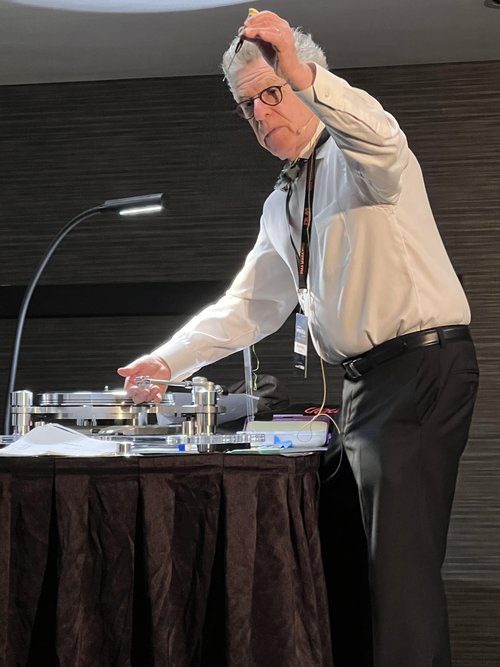
“I once reviewed a pair of speakers that wasn’t good, especially at its asking price. I was happy that John Atkinson confirmed my findings with measurements, which is always reassuring. The company said, ‘Oh, the crossover was wrong’, and we let them send another pair because it was a company that always made good-sounding products. The new pair was somewhat better, but this was a $50,000 speaker. It better have deep bass. It didn’t. It rolled off at around 40Hz, similar to that of a bookshelf that wouldn’t warrant such a high price tag.
“At the next audio show, I walked into the room where the guy who ran the company was present. I asked him how the show was going. He responded, ‘Until you showed up, fine. Since you showed up, not so fine.’ He then said he was just kidding. Sure. They weren’t happy with the review, but it’s okay.
“Another time, I reviewed a turntable from a well-known manufacturer that was beautifully machined and sounded wonderful. But it lacked slam. It sounded soft. After I wrote that review, the manufacturer banned me from his room at CES for three years. When I returned the fourth year, he allowed me in but we could only talk about coffee. Eventually, we were friends again, and he admitted that I was right in my review.
“I got this 17-year-old kid writing for me, Malachi Lui, who I met when he was 12. Do you know about this kid?”
I tell him I think I saw him in one of his videos. He nods.
“Read his review of the Bob Dylan Fragments bootleg,” he says. “It’s insane. He wrote it. I didn’t change one word, not one punctuation mark. I couldn’t have written it as well. I accept the fact that he’s better than me at this point, and he’s 17!
“The first thing this kid reviewed for me was John Coltrane’s Both Directions at Once. He was 12. He handed in the review. I read it and said, ‘You didn’t write that’. He said he did. I asked if he was sure, because if he hadn’t and I published it and someone came to me saying that he wrote it, we’d all be in trouble. I’d have to fire him. But he insisted he did. So I agreed to publish it, on the condition he add a bit of information about the other records released in 1964 that were better than this record, and why this record didn’t come out. The next day the piece was done. After I published it, Joe Harley, the Tone Poet, who wasn’t a fan of the record, called me and said, ‘Damn, that’s what I would’ve written.’
“This kid’s been friends with Jack White since he was 10. That’s a whole other story. Jack and him are like that.
“Before the pandemic struck, Malachi was supposed to come visit the East Coast, and we had plans to spend a day at Greg Calbi’s mastering suite in New Jersey, followed by a dinner with Craig Kallman, the CEO of Atlantic Records. All of this was at their invitation, not mine, because they wanted to meet this exceptional kid.”
Michael then shows me pictures of some of his travels, places he was invited to to set up turntables for individuals or give turntable setup seminars. One photo shows the biggest and most luxurious car collection I’ve ever seen, owned by a private collector in Abu Dhabi where Michael was invited to install a new turntable amid a state-of-the-art audio system that had, until then, no analogue front-end. That’s when it hits me, how far Mikey’s passion and advocacy for the LP format and audio in general has taken him—across the world! But also, taken us.
As if on cue, Mikey stands up from our interview, suitcase in hand. It’s time for him to leave for the airport so he can head back home.
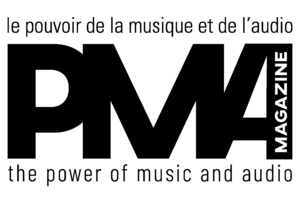
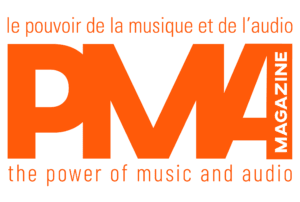
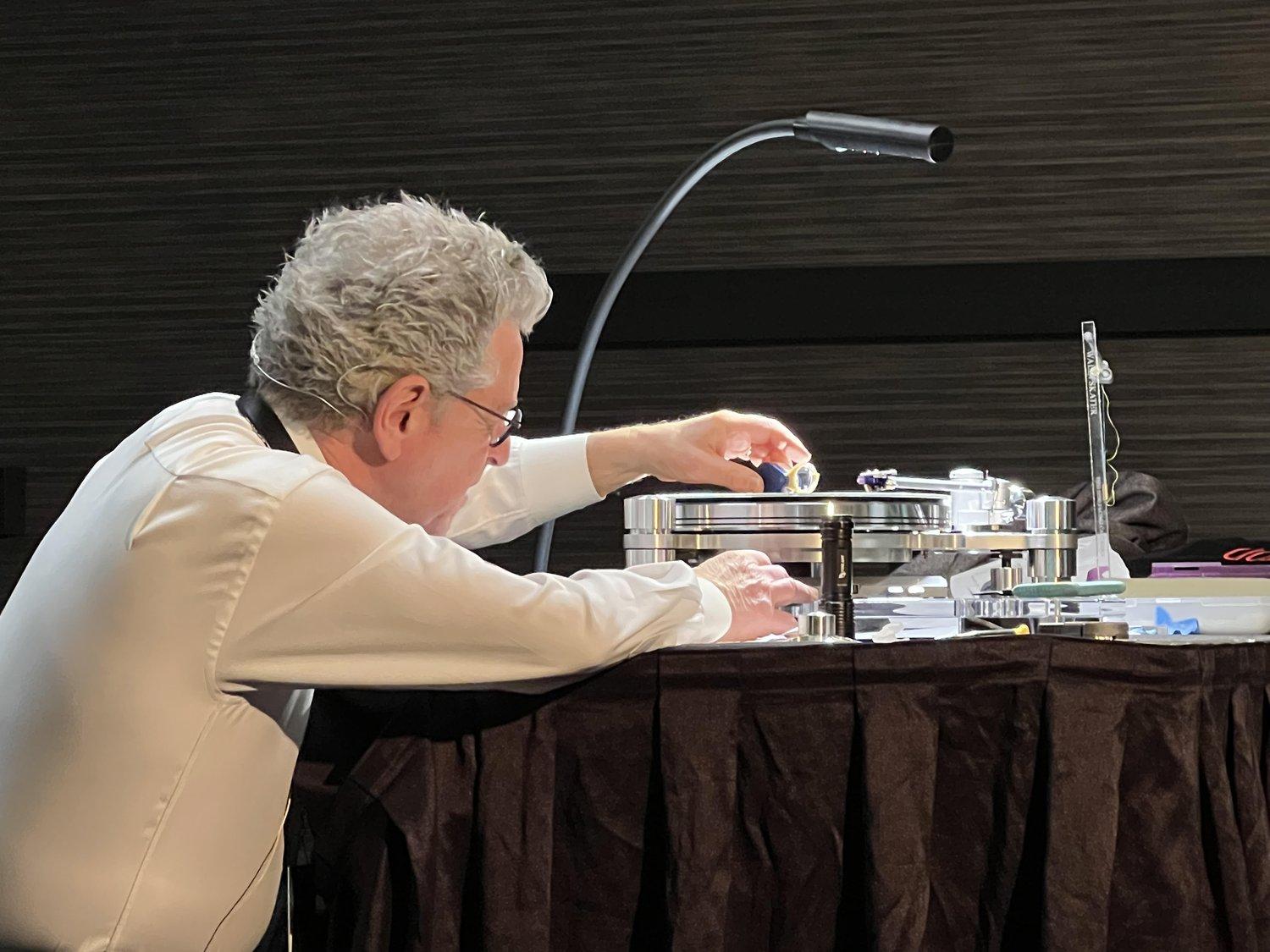
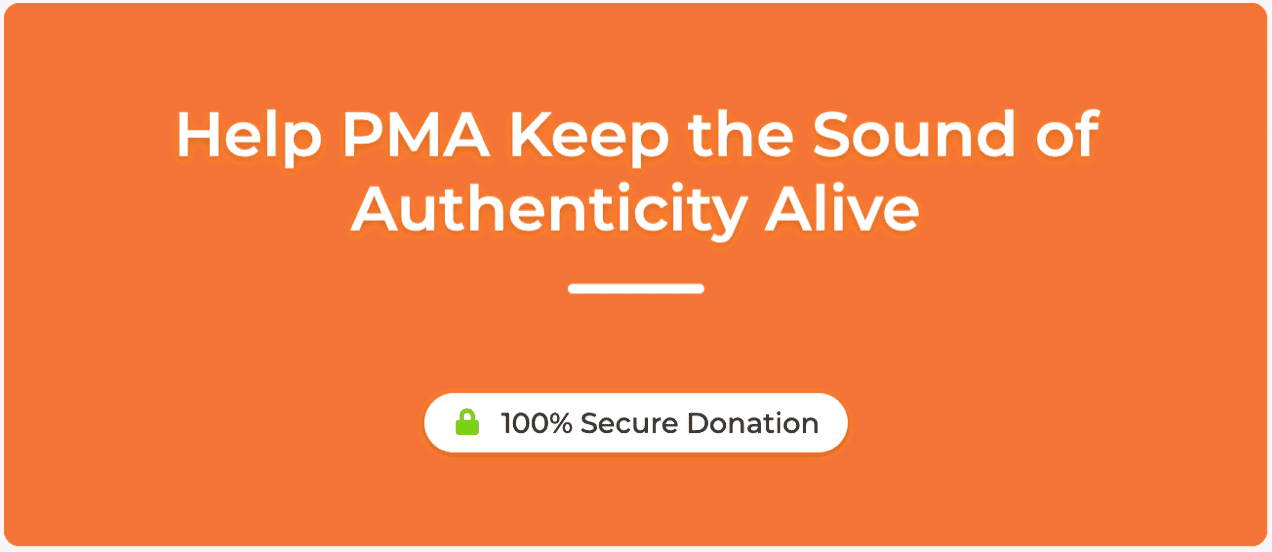
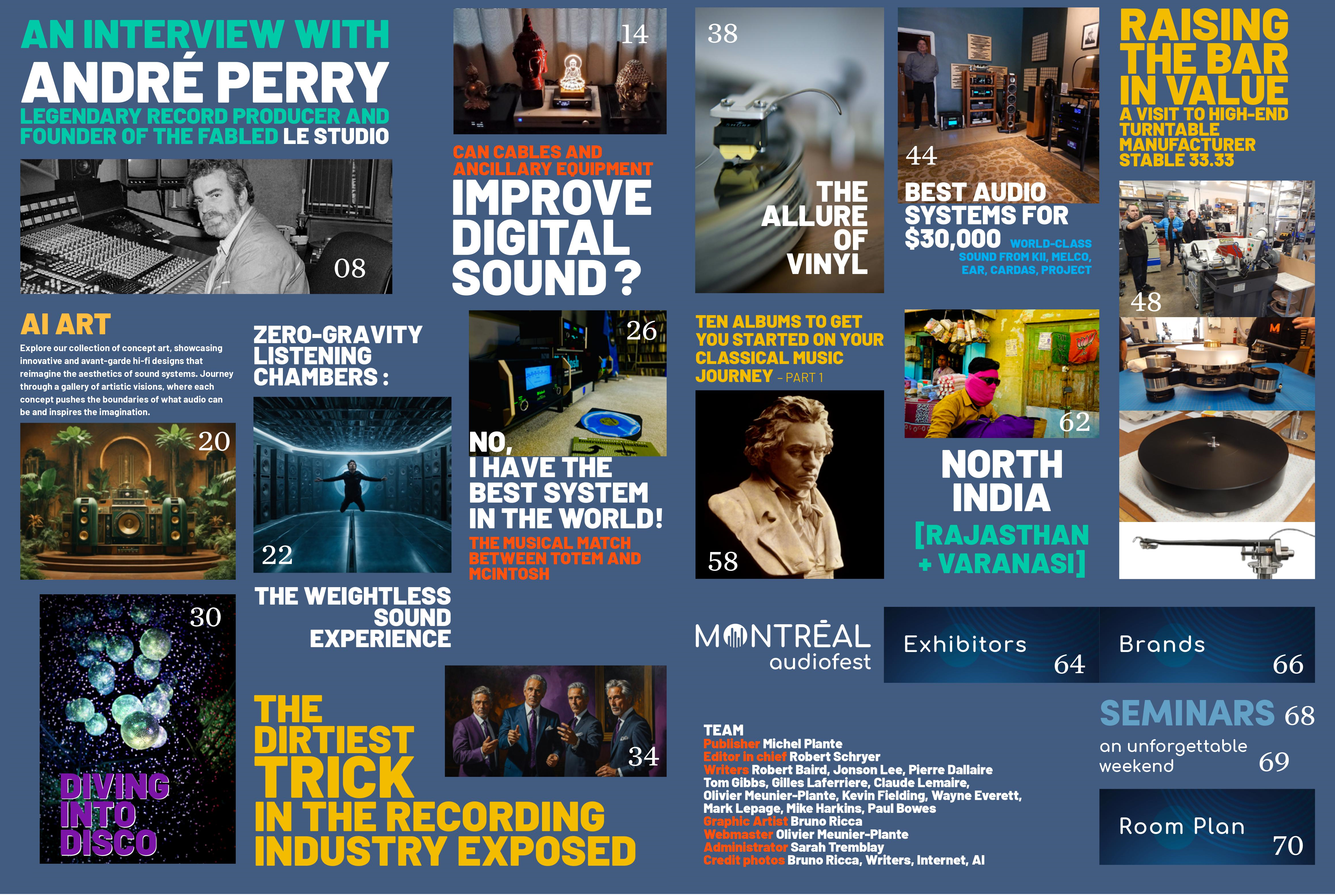
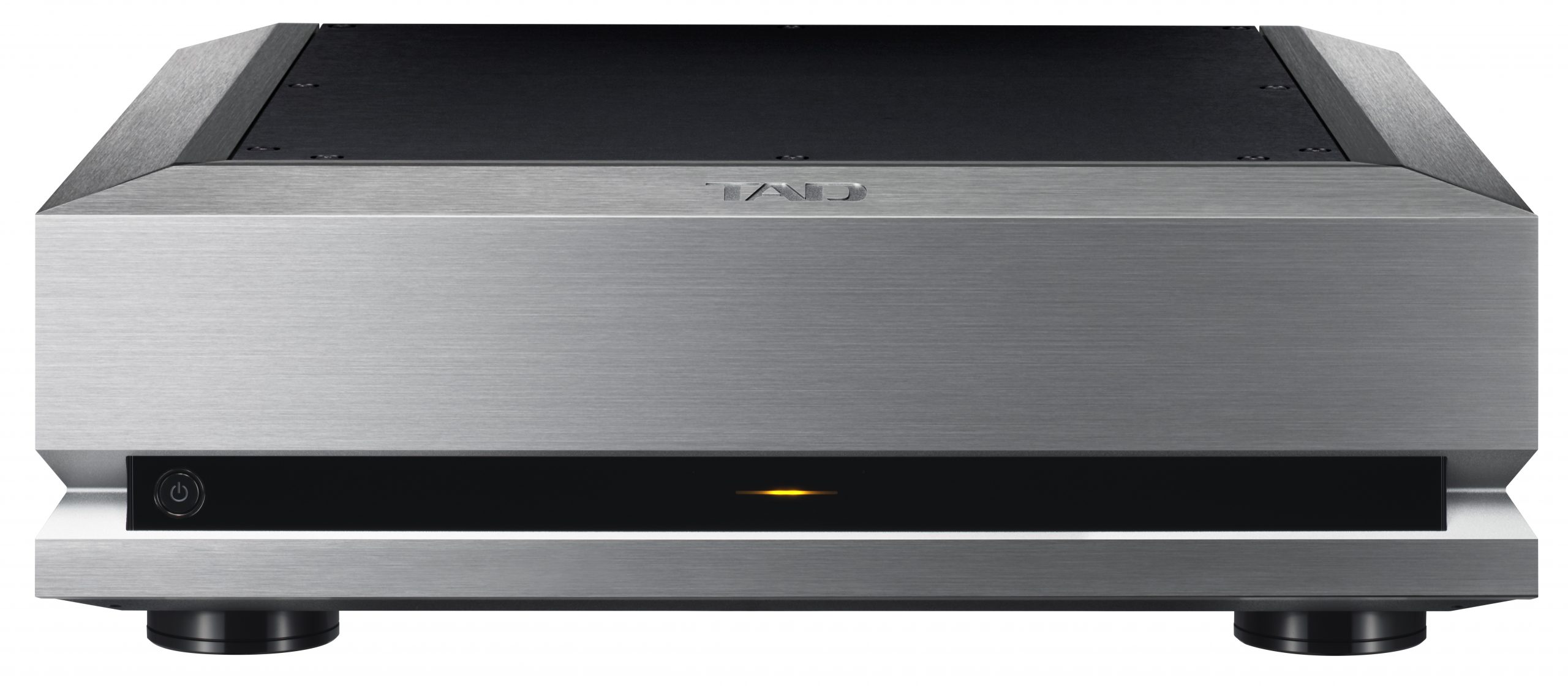



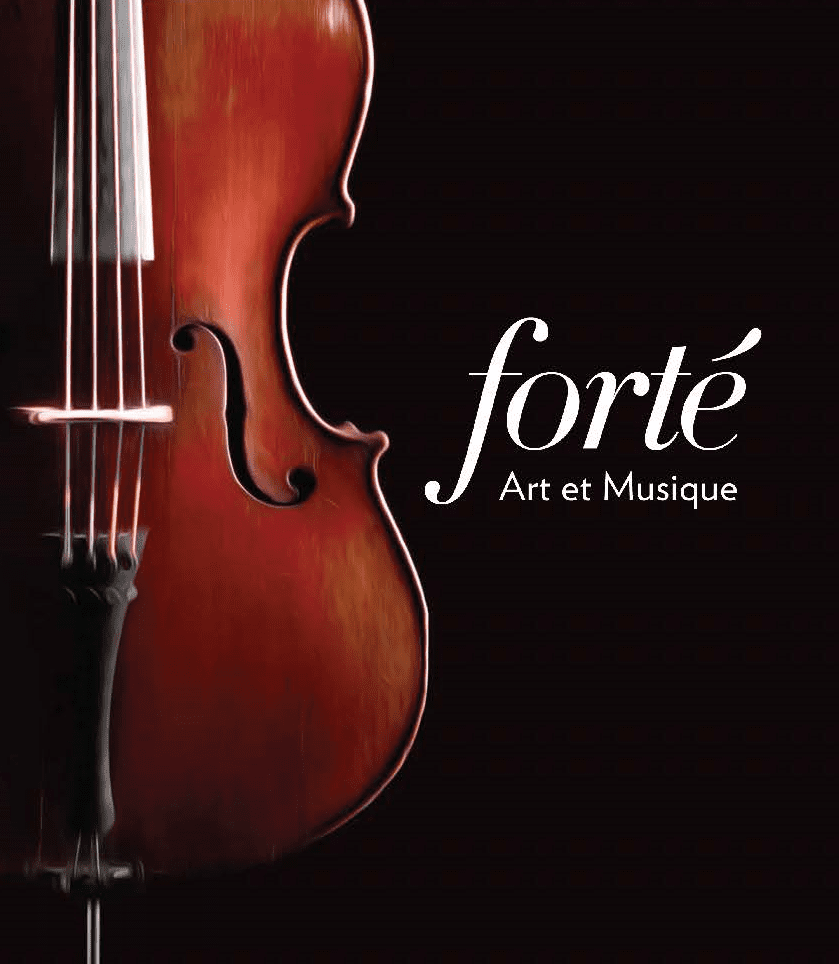
Leave a Reply